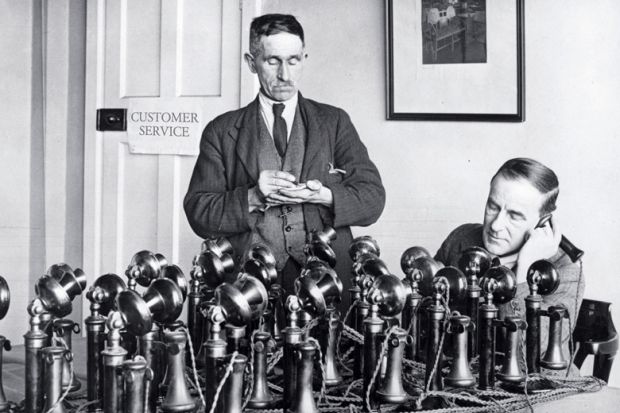Universities should not see the term “customer” as a “dirty word”, according to the chief operating officer at London South Bank University (LSBU), who said that the institution has developed a “customer service ethos” for students as a key part of its strategy.
Speaking to Times Higher Education, Ian Mehrtens said that students “pay a lot of money for their education” and they “deserve” to receive it “in the best possible way”.
He added that delivering good customer service has always been an important role for universities, but it has become a more urgent task in recent years since the introduction of tuition fees.
“Evidence we’ve got from the Institute of Customer Service is that younger people now are very dissatisfied with the level of service generally across the country. What they value is speed of service, personalised service and timely feedback. So what we’re now doing is responding to those [demands],” he said.
Earlier this year, LSBU became the first university to receive four Institute of Customer Service ServiceMark accreditations in recognition of its accommodation services, library and learning resources, student life centre and the academy of sport.
The award is based on customer satisfaction feedback and an assessment of employee engagement with the university’s customer service strategy. More than 1,000 students at LSBU were surveyed.
The institution scored more than five percentage points above the average for customer satisfaction in the education and research sector; the average score was 62.12 per cent, while LSBU scored 67.7 per cent.
The notion of students as customers is a controversial topic. Robert Allison, vice-chancellor of Loughborough University, last year told THE that he does not “buy into” the idea of students as consumers or customers.
“If you call them consumers, you commodify them – I see them as partners with us on a journey.”
In addition, a study published earlier this year found that students who see themselves as consumers rather than learners tend to perform more poorly academically.
However, Mr Mehrtens said: “Here at LSBU, we don’t see customer as a dirty word.
“Where you’ve got students from difficult socio-economic backgrounds, who’ve borrowed a lot of money – probably one of the biggest borrowing commitments they’ll make in their entire life – then we need to deliver that service to them.”
He added: “The idea at LSBU is that we develop a customer service ethos across the board so people are able to anticipate student needs and deliver what they want when they want it.”
For example, he said that the institution has responded to concerns from students regarding the way they submit coursework, meaning that there are now more offices on campus where students can submit work as well as an online submissions system.
He added that the university is now beginning to introduce the “customer service ethos” to teaching.
“This isn’t about trying to determine whether lecture A is better than lecture B. But actually there are elements of customer service there as well. Does the lecturer turn up on time or is the lecturer consistently late? Are [academics] giving timely feedback on coursework?” he said.
Register to continue
Why register?
- Registration is free and only takes a moment
- Once registered, you can read 3 articles a month
- Sign up for our newsletter
Subscribe
Or subscribe for unlimited access to:
- Unlimited access to news, views, insights & reviews
- Digital editions
- Digital access to THE’s university and college rankings analysis
Already registered or a current subscriber?





